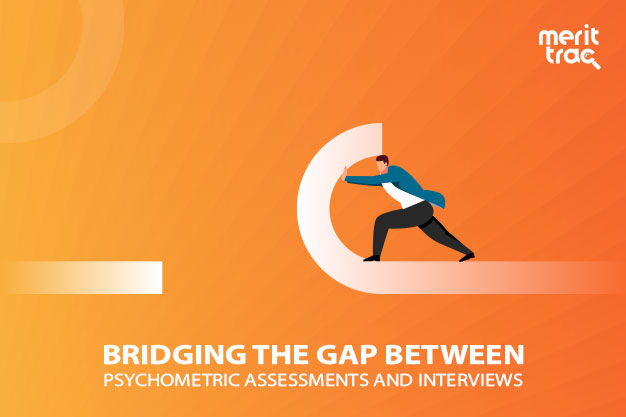
Bridging the Gap between Psychometric Assessments and Interviews
Date: 20/12/2019 | Posted by: Meghana Jitendra | Category: Corporate , Interview , Psychometric Assessment
Most recruitment processes have multiple rounds of screening, evaluation and selection, sometimes with multiple people involved. It also happens often that the same people don’t get to evaluate the candidate across the different rounds of selection, and attributes evaluated across rounds are also inconsistent. Insights about the candidate’s candidature across rounds are often disjointed and cumulatively incoherent, meaning that what is learnt about the candidate in one round doesn’t often inform the evaluation in the next round. It usually happens that results of a psychometric assessment are not considered by interviewers as valuable information to further build-on their understanding of the candidate’s overall candidature.
Insights from psychometric assessments can be used to guide interviews, strengthening the validity of the assessment results as well as gain deeper understanding about the candidate’s behavioural traits.
Interview questions would give insights into the interplay of the candidate’s traits (as reflected in psychometric assessments) and the situational factors. The candidate’s psychological attributes can be contextualised and examined for how they operate in the business environment. Assessment reports are a good starting point in making interviews more discerning. Different industries and functions, and even scenarios impact psychological attributes differently. For example, risk taking as a trait may function differently in the banking sector when compared to healthcare. The kind and degree of risk-taking behaviour allowed, tolerated and encouraged differ, resulting in differences in how risk-taking an individual is in interacting with the concerned environments.
Answers to the interview questions should provide specific examples of work behaviour that reflect the trait. Interviews can attempt to unveil key behaviours that reflect the trait. For example, while the assessment report may reveal that the candidate is extroverted, interviews can further explore if the individual is a team player or a leader.
A candidate’s awareness of their traits, strengths and weaknesses can be identified through the interview questions. Higher the awareness, more likely is the candidate to leverage their strengths for high performance.
In cases where the results of the assessment do not really match the observations from the interview, it is possible that the candidate has attempted to give socially desirable answers and not presented their authentic self. It is also possible that the candidate’s self-awareness is low, their behaviours don’t seem to match their perceptions of their own psychological dispositions. There observations can be highly valuable in the hiring process.
Every round in the selection process should bring in new insights as well as build on the information already gathered about the candidate, to provide a holistic impression. When information from psychometric assessments flows to interview guides, deeper and more meaningful observations are possible and well-informed hiring decisions can be made.












 Sales Hotline: USA: +1 646 916 0939 / Others: +91 80619 14700
Sales Hotline: USA: +1 646 916 0939 / Others: +91 80619 14700


